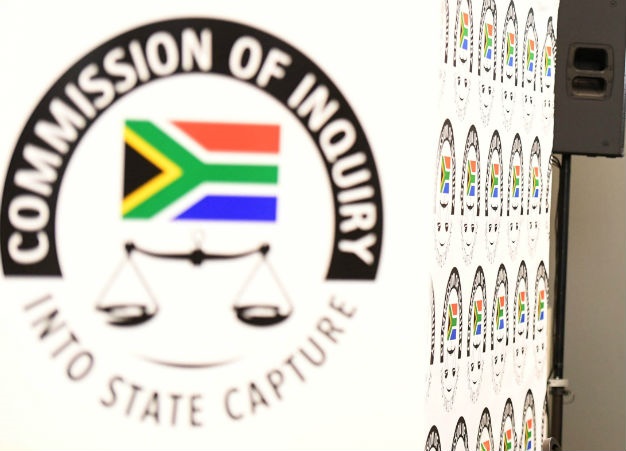
Commission into state capture. (Deaan Vivier, Gallo Images, Netwerk24, file)
Multimedia · User Galleries · News in Pictures Send us your pictures · Send us your stories

Commission into state capture. (Deaan Vivier, Gallo Images, Netwerk24, file)
Multimedia · User Galleries · News in Pictures Send us your pictures · Send us your stories

Bosasa and the Guptas are no different from each other; they only happen to be competitors in a corrupt political economy, writes Ralph Mathekga.
The effects of corruption on a society goes beyond loss of money. Corruption tears societies apart and threatens the legitimacy of institutions.
Corruption takes away the nation's innocence and belief that institutions exist in the public interest as opposed to being there to further special interests or the interests of a few.
Where corruption is rampant, it becomes difficult for people to believe that the state's institutions offer recourse against injustice. The revelations about the extent of corruption involving Bosasa, as alleged at the Zondo Commission, show that key institutions such as the prosecuting authority were significantly weakened by those benefitting from corruption.
The Bosasa saga has the potential to tear down the society. The Zondo Commission's revelations regarding the company have got South Africans talking, at times accusing each other of cover ups and deliberate distortions regarding the nature and extent of corruption in South Africa.
Bosasa is alleged to have infiltrated the criminal justice system, the ANC as a governing party, and the broader political space in the country. If the allegations of wholesale bribery by Bosasa are true, it shows that the company is primarily a corruption enterprise with provision of securities and catering services as additional work carried out when necessary. Its core function is then to perfect corruption.
The story of Bosasa has thus far had the usual effect on the conversation about corruption among South Africans. The usual response by South Africans when we see details of how bad things have become is to first act surprised and shocked. It has been public knowledge for a long time now that Bosasa was involved in corrupt activities relating to tenders and shouldn't really surprise us.
Treasury maintains a list of serious tender rule offenders with the aim to discourage government departments from doing business with the black listed. The company was officially "black listed" by national treasury from attaining business in government, yet it amassed more and more tenders despite this.
Being on that list should have discouraged government departments from continuing to do business with Bosasa. Instead, Bosasa only changed its name and carried on doing business with government.
This is indicative of a company that is above the law and literally controls the governing political party, the ANC.
The ANC was the first institution to be annihilated by Bosasa, to ensure that the party tows the line and becomes crippled when it comes to disciplining those who take bribes from Bosasa.
For any successful capture of the state or its institutions to take place, the first thing to do is to manage the political party that deploys individuals to government. How do you do that? You fund the party and make sure it relies on that funding channel. In that way, the fight against corruption becomes the fight against a source of funding for the party.
Those who are tasked with taking the bribe money to the party, simply start stealing some of the laundered or even stolen money that was meant for the party, opening their own institutional network to amass more tenders and pass as little money as possible to the party. I will be surprised if all the money from Bosasa that was allegedly meant to fund the ANC made its way to the party.
The Bosasa saga also triggers among South Africans the usual responses that attention is now drawn away from the poster boys of corruption, the Gupta family. Some are asking why Angelo Agrizzi is so willing to spill the beans? Is it because he was paid to deflect attention from the Guptas? Do the Guptas come across as more respectful in their means as opposed to Bosasa's preference for cash payments? Thus, between the Guptas and Bosasa, who shared their loot equitably among the said comrades? Who was more ruthless in building a corruption pipeline?
Once we go the route of trying to decide whose corruption is more tolerable to live with, we find ourselves having to take a position in relation to which corruption enterprise we could live with, and which one embarrasses us more. In relation to Bosasa, some are happy to say it hardly implicates Zuma. Well, what about his obligation to have stopped it? Failing to stop grand corruption also implies that Zuma might have been silenced with bribery, which makes him an accomplice.
The truth of the matter is that Bosasa and the Guptas are no different from each other; they only happen to be competitors in a corrupt political economy. The fact that Bosasa has come forth as a serious player in the game of corruption does not mean the Gupta family is off the hook. It only means that there were several competitors in the game of robbing South Africans.
This cannot be a reprieve; it only shows how corruption was nearly democratised among all willing competitors. South Africans are still worse off.
- Ralph Mathekga is a senior researcher at UWC's Centre for Humanities Research, and author of When Zuma Goes and Ramaphosa's Turn.
Disclaimer: News24 encourages freedom of speech and the expression of diverse views. The views of columnists published on News24 are therefore their own and do not necessarily represent the views of News24.